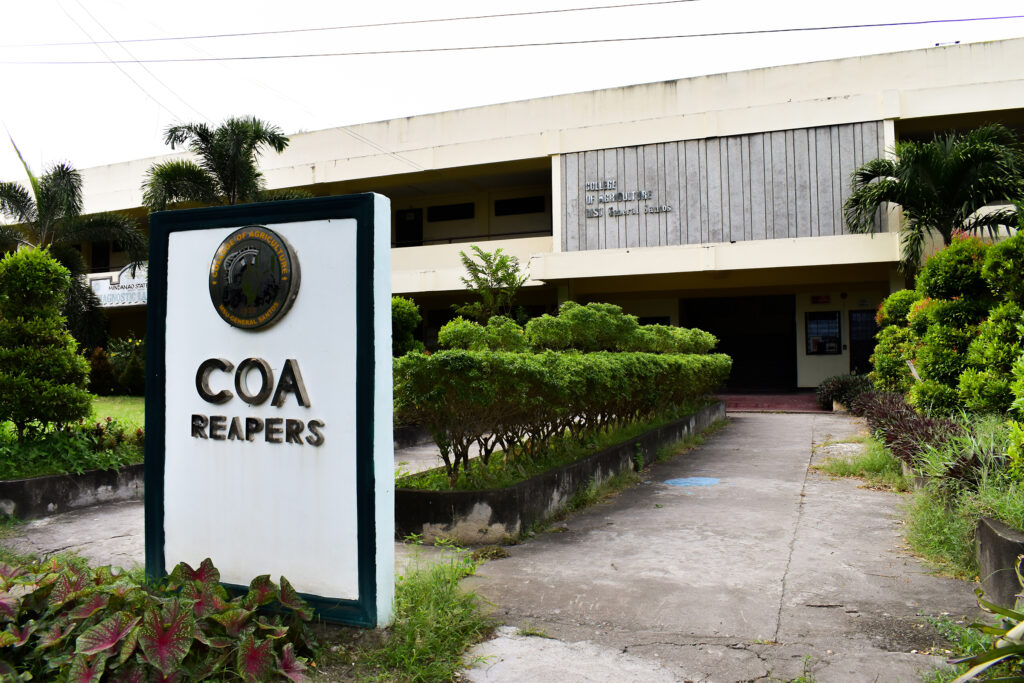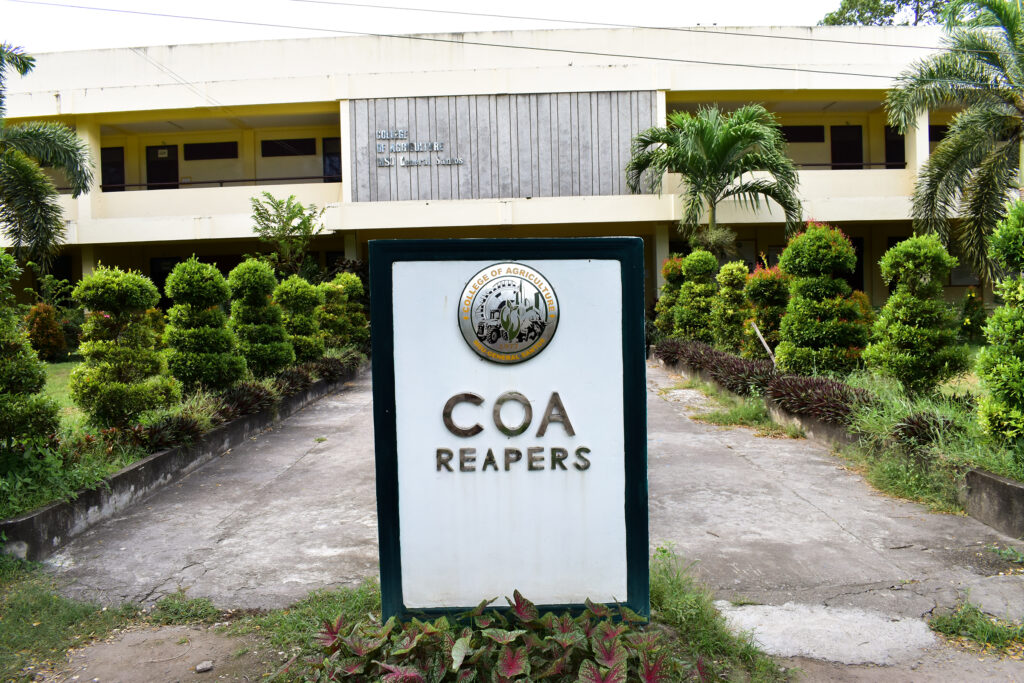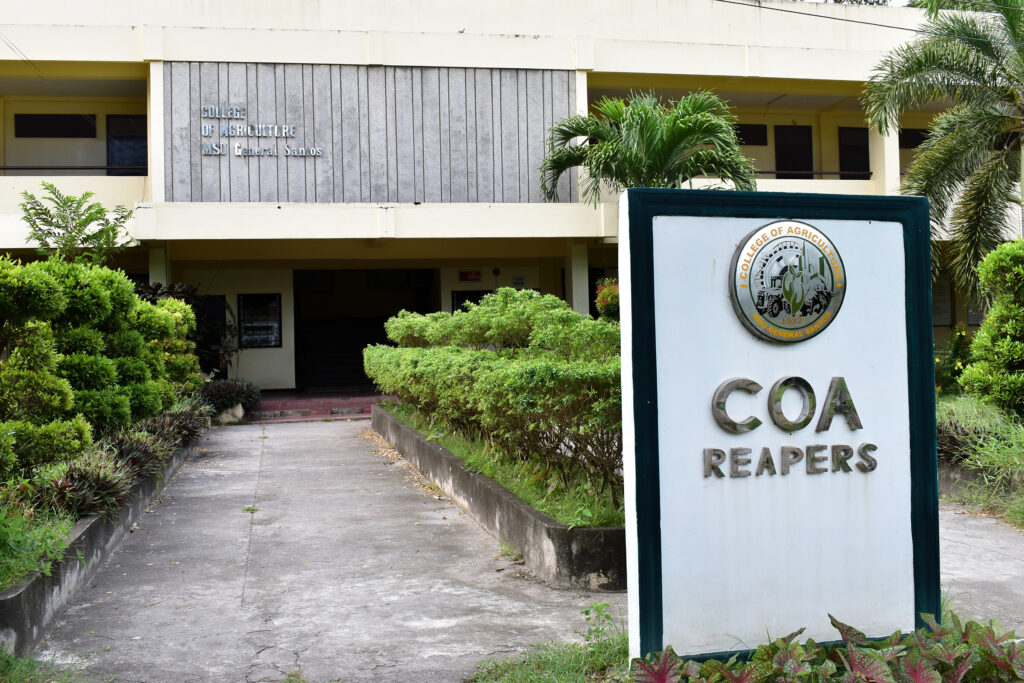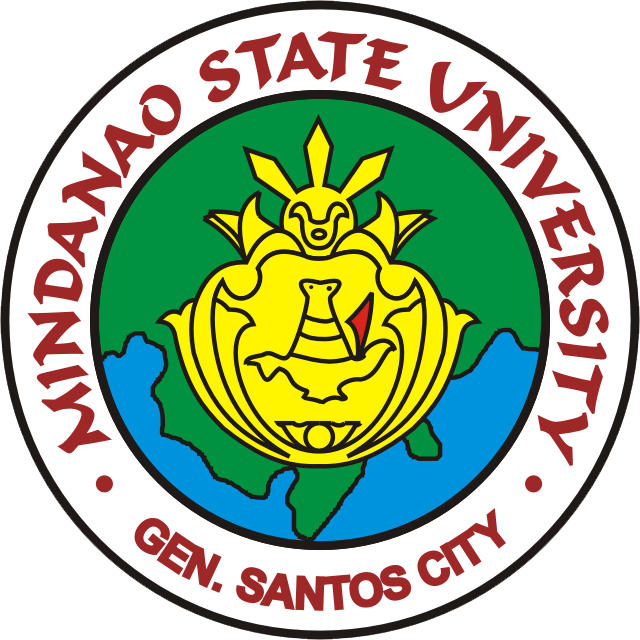Contact Info

Donna Ria R. Josue-Canaca PhD
Dean
9088105716
Contact Number
coadean@msugensan.edu.ph
Institutional Email
News and Events
Click the link below for our current news and events schedules
Faculty and Staff
Program Prospectus
Colleges

College of Agriculture



Contact Info
The College of Agriculture is at the forefront of various initiatives to achieve excellence by providing quality education, relevant knowledge and technologies, and significant services to its stakeholders. It focuses on these four main goals:
- Excellent and dynamic graduates;
- Responsive technologies;
- Relevant extension activities; and
- Profitable and sustainable income-generating projects.
Department Chairpersons

Rener Tandugon, MS

Ronnie June Simpao, MAST

Argene Arsenal, Ph.D.

Fryan Allen Subong, MAST
Undergraduate Programs
Bachelor of Science in Agribusiness Management
The Bachelor of Science in Agricultural Business Management is designed to enhance expertise for increased managerial responsibility of individuals who are engaged in planning and implementing agribusiness development projects or programs in agriculture, agro-industries and agro-services. The program will maintain its distinctive feature from the other business management courses of having both its concern with the technical side of agriculture and the business-management orientation. Thus, Agribusiness students will be exposed to the fundamental agriculture courses strengthened with business concepts; economics and marketing principles; and management tools to solve production, marketing, financial and human resource concerns of agriculture based-businesses. The program aims to produce graduates who will be corporate planners, entrepreneurs, business consultants, business managers, sales representatives, credit analysts, teaching professionals, researchers and extensionists of the Agriculture sector in general and specifically in the field of Agribusiness.
Bachelor of Science in Agricultural and Biosystems Engineering
The Bachelor of Science in Agricultural and Biosystems Engineering shall continuously evolve in response to technological advances; changing national, regional and global market needs; and energy and environmental concerns, and therefore, it is progressively challenged to improve the efficiency of agricultural and Biosystems (AB) production and processing systems; develop cost-effective renewable energy systems and indigenous construction materials; and implement effective natural resources, environmental, climate change, and waste management systems. The BS ABE Program has been prepared to make sure that it will produce graduates who can demonstrate at the required level the necessary competence (knowledge, skills, and attitudes) to respond to the demands of the local and international environment. Agricultural and Biosystems Engineering (ABE) is defined as a field of engineering which integrates engineering science and designs with applied agricultural, biological, and environmental sciences. It represents an evolution of the Agricultural and Biosystems Engineering discipline applied to all living organisms and addresses areas such as food safety and security, biodiversity, new and renewable energy, ecosystems protection, climate change mitigation, and human health and safety. The traditional areas of Agricultural and Biosystems Engineering are still very much covered.
Bachelor of Science in Agriculture (Animal Science, Agronomy)
The Bachelor of Science in Agriculture (Animal Science) curriculum in general is based on the competency standards of agriculture as stipulated in CMO draft as of October 17, 2016 which emphasizes carrying out the science, art, ethics, management and entrepreneurial business in the production, processing and marketing of plants, animals and other organisms utilized for food, fiber, recreation, biomedicine, industrial and other purposes within the context of integrated and sustainable agriculture resource systems. The program addresses the concept of ladderization as specified in the Executive Order No. 358 to “Institutionalize a Ladderized Interface between the Technical-Vocational Education and Training (TVET) and Higher Education (HE) (CMO No. 14, s2008). A Certificate of Agricultural Science will be awarded to the student after completion of the first two years under the BSA program. This increases the employability of the graduates. BSA Animal Science aims to fulfill the educational needs of students on issues facing agriculture and provide them with the tools to make informed decisions for their future and the future of animal agriculture; Provide and teach a process of integrated management to optimize the use of all farm and ranch resources by fostering efforts within and among departments, industry and agencies to solve problems in animal agriculture; Educate students in development of animal production systems that are sustainable, maintain and/or enhance our local and national environment and renewable resources; Provide unbiased, research-based information to facilitate problem solving in livestock and poultry production systems; Provide continuing education programs for the livestock industries and consumers of animal products about new and emerging issues facing animal agriculture, including ethical issues on the use of animals for food and in researches, halal production, slaughter and food processing.
Certificate in Agricultural Science (Animal Science, Agronomy)
graduate Programs
Master of Science in Agribusiness Management - Academic Track
Master of Agribusiness Management - Professional Track





